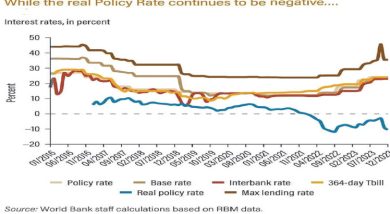‘Banks to exercise prudence’

Reserve Bank of Malawi (RBM) Governor Charles Chuka has advised commercial banks to exercise prudence and risk-based management to ensure that they are sound to weather any economic storm that may occur.
Chuka, speaking on Thursday in Blantyre at the opening of a two-day capital management, risk appetite, strategy setting and Internal Capital Adequacy Assessment Process (Icaap) training for country’s banks board of directors, said this requires boards that know what they are doing.
This is part of the rollout of Basel II— the second of Basel accords which are recommendations on banking laws and regulations issued by the Basel Committee of Banking Supervision—which local banks are expected to implement come January 2014.
The governor chronicled how the banks survived the economic malaise of 2012, characterised by liquidity squeeze, high inflation and interest rates and higher levels of non-performing loans, stressing that those banks that have a robust board oversight function did well last year.
“We have managed to do a lot five months away,” said Chuka on the rollout of Basel II, adding that risk management structures are all in place.
He noted that the pilot phase of Basel II has cleared out all the possible challenges and is achieving its intended objectives.
Chuka advised the board of directors to ensure that capacity management is an important capital agenda item for their operations, commending most of the banks for the managing the financial institutions well and ensured that they were “floating under difficult times”.
Thursday’s training, was part of a series of trainings the RBM has been conducting over the past year to equip banks personnel as the rollout to Basel II is just a few months away.
The training yesterday, as has always been the case, is being facilitated by Rob Wade and Bianca Ruddy from financial advisory firm KPMG South Africa.
In an interview later, Chuka said that Basel II, despite that other countries have migrated to Basel III, will ensure that Malawi’s banks are in line with the international standard.
He said, in the past, much of the risk assessment more of backward looking instead of looking forward.
“Basel II will ensure that we are forward looking. As we supervise our banks, risk management must take into account not what is in the past, but also trying to incorporate issues that are forward looking,” he stressed.
A bank, Chuka said, must expect any changes in policy or any shocks that may happen in an economy so that when they are lending, they take into account all the risks that they face going forward.
According to the RBM’s assessment, all the banks are now on line, with a few remaining with the management information system (MIS) as the only challenge.
The implementation of MIS will require a lot of investment, infrastructure and capacity building of people.
One of the principal objectives of implementing Basel II, according to RBM, is to have banks that are adequately capitalised all the time, but have to manage their capital if they are to maintain satisfactory capital adequacy levels.






This is a very good move. Basel ii is adequate for the needs of Malawi. Basel III is meeting some resistance around the world because of its over-restrictiveness in some areas. This will help smoothen workings of the financial sector. The article mentions adequacy of the banking sector capitalisation, I hope they are rolling out the other two pillars of market discipline and Supervisory review process. I hope this implementation will introduce updated new risk assessment models such as VaR for operational risk assessment to help drive rates down along with credit risk, market risks, rates on the books and liquidity risks.
The high lending rate is causing double marginalisation problem in the field with the industry charging high prices to cover high rates.